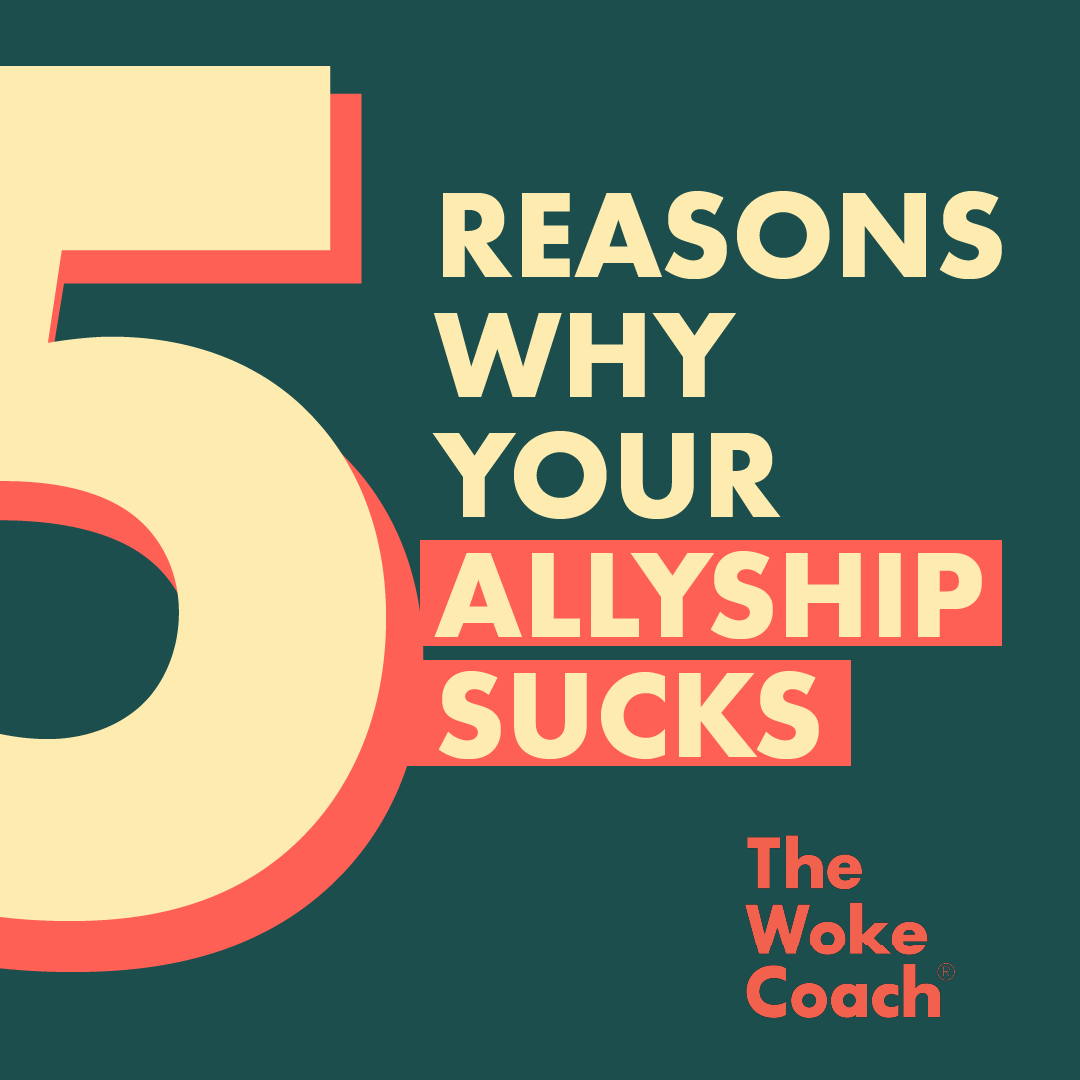If you’ve ever met me, been in one of the sessions I’ve hosted for The Woke Coach, or watched my Instagram Lives, then you know that I value naming the truth of our circumstance above all else. The truth is crucial in racial equity work because we can easily talk around issues of race and allyship if we don’t speak directly to them.
And so, I want to speak some truth to you right now: You might not be who you think you are.
We all want to be the best version of ourselves we can be. And yet, we might be falling short in ways we can’t perceive until someone points it out for us. You might think you’re a great ally but actually are not showing up in the work in the ways we need allies to do. You might think you’re supporting others when really, you’re not taking any action.
When it comes to achieving racial equity, work is required. We can’t wait for time to heal our deep wounds or for people to miraculously come around to the harsh reality that our systems and structures are perpetuating inequity. We each must opt-in and do the work.
Are you doing as much as you can? Are you supporting historically excluded groups as much as you can be? Are you a part of the problem? Maybe, but maybe not. Want to know? Read on.
Here are five signs that your allyship sucks.
- You’re not uncomfortable. If you aren’t uncomfortable on your journey to being a fierce antiracist, you’re doing something wrong. You should be engaging with deeply uncomfortable facts, history, truths, and circumstances at each moment. We often turn away from discomfort because, well, it’s uncomfortable. But you can’t be an effective ally if you shy away from the hard stuff. I suggest paying more attention to the discomfort and using it as an indicator that whatever makes you uncomfortable is also an opportunity to expand and deepen your allyship.
- You’re waiting for someone to tell you what to do. Allyship has to be self-driven work. You can and should listen and learn from others, but moving to action is on you. No one can tell you the exact steps to take because your action should be rooted in what you care about, what you’re experiencing, and what good you can personally bring to your community or workplace. Being an antiracist is a lifestyle, not a set of tasks or to-dos that you run through and check the boxes.
- You don’t know our collective history. Suppose you’re really interested and involved in current events but don’t know the details of what brought us to this moment in time. In that case, you’re doing yourself and the people you seek to support a considerable disservice. Our history is a critical tool in making effective change. Only by knowing exactly what produced the issues we are experiencing today can we unravel and undo the layers of harm that have built up over the last 400+ years.
- You’re not centering race. Our country was built on a racial hierarchy from the start and has ignored the issue for centuries. Moreover, race transcends all other issues that plague our country. If you’re interested in LGBTQIA+, race is a core element because Black trans folks are killed at a much higher rate than non-Black trans folks. If you’re an ally to the disability community, you may know that 3 in 10 American Indian/Alaska Native and 1 in 4 Blacks have a disability compared to 1 in 5 white people. The reality is that antiracism has to be a central element of your allyship, or you’re not addressing the most persistent, core issue that we have here in the U.S.
- You’re not taking risks as an accomplice. Yep, I said risk. Truly supporting historically excluded people hinges on being willing and able to take risks on behalf of people you see to serve. Maybe you’re willing to give up the lead role on a project to give a younger Black woman the opportunity to build her skills. Perhaps you’re willing to risk your comfort to object to the ableist language used at a company meeting. Maybe you’re willing to risk your reputation by continuously calling out the inequitable hiring practices that your HR department is perpetuating. These risks are available to most people in most workplaces and beyond. Are you taking them?
Let me be clear. Your allyship sucks because allyship is not the endgame. We need accomplices! Allyship is fine, and I won’t tell you that you can’t do some good as an ally. But I can definitively tell you that you can do the most good as an accomplice.
Accomplices continuously push themselves, are proactive, are aware of our past and its impacts, center race, and take risks. At The Woke Coach, we teach you how to cut through the fear and get to the very-direct ways you can actually be who you think you are.
Want to level up? Join our From Ally to Accomplice community or partner with us in your business to learn how.

